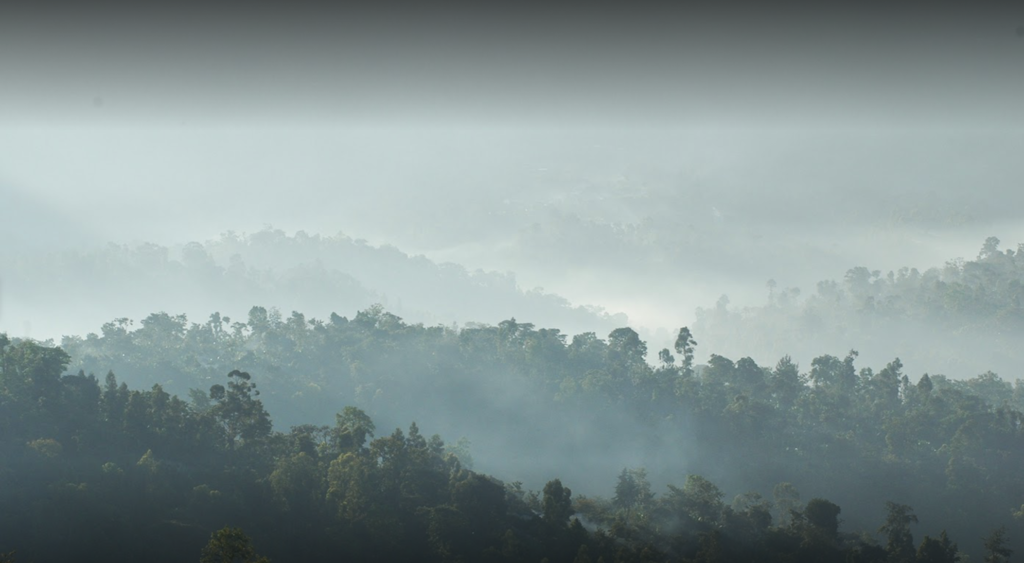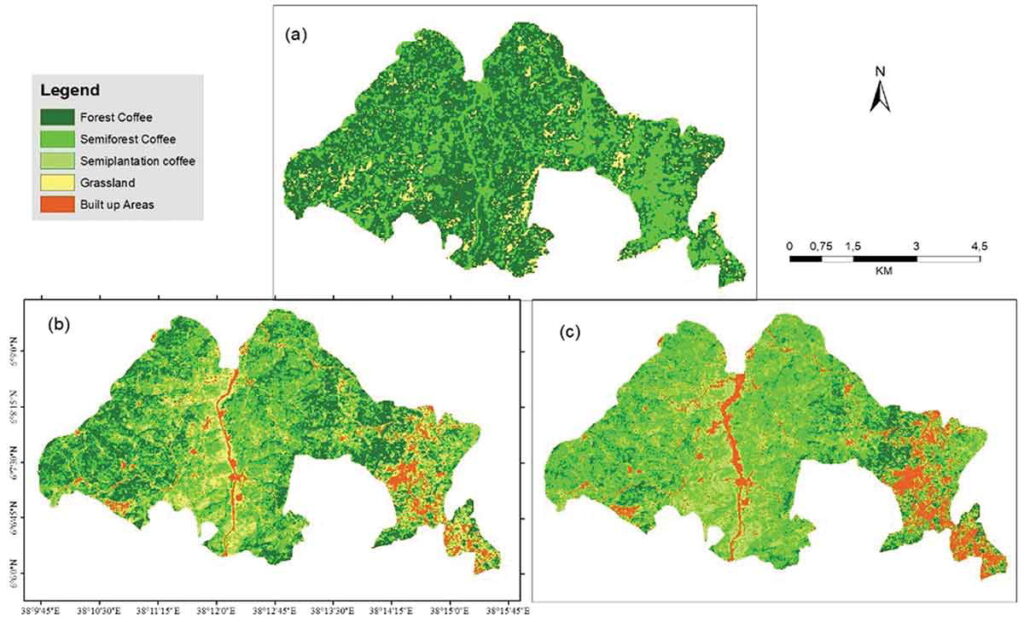Land use in change in coffee producing countries
Around the globe, land use is changing at an alarming rate and coffee producing regions are no exception.
Industrial coffee farming is a big contributor to global warming. Deforestation and forest degradation, is the cause for around 45% of the carbon footprint of a bag of coffee. Overall, land use change accounts for 12-29% of all global greenhouse gas emissions.


Land use and land cover in Yirgracheffe in 1988 (a), 2003 (b) and 2018 (c). Source: Adane (2020).
Coffee production is changing in Ethiopia
In Ethiopia, coffee is grown by small-scale farmers under the shade of forest canopy, without chemical fertilisers. Coffee forests are an excellent store of carbon, holding up to 94% of the carbon stored in natural forests.
As agriculture constitutes a primary form of livelihood in rural Ethiopia, farmers are turning their backs on coffee moving towards other more lucrative crops. Working alongside Carble, we are investigating how we can financially reward coffee farmers for maintaining the forest canopy. Focusing on how to reduce our carbon footprint and smallholder poverty in a single investment.
